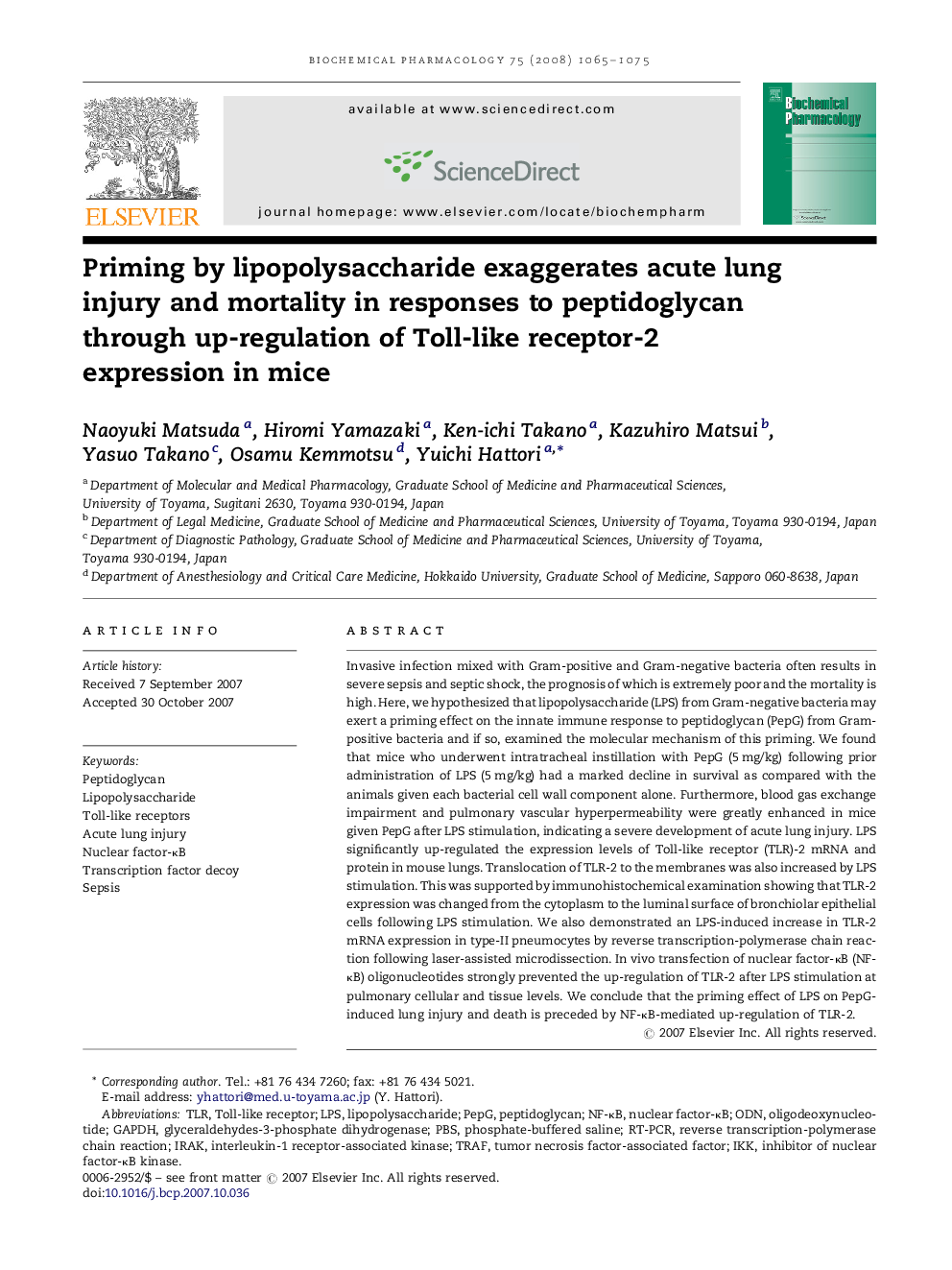| Article ID | Journal | Published Year | Pages | File Type |
|---|---|---|---|---|
| 2514613 | Biochemical Pharmacology | 2008 | 11 Pages |
Invasive infection mixed with Gram-positive and Gram-negative bacteria often results in severe sepsis and septic shock, the prognosis of which is extremely poor and the mortality is high. Here, we hypothesized that lipopolysaccharide (LPS) from Gram-negative bacteria may exert a priming effect on the innate immune response to peptidoglycan (PepG) from Gram-positive bacteria and if so, examined the molecular mechanism of this priming. We found that mice who underwent intratracheal instillation with PepG (5 mg/kg) following prior administration of LPS (5 mg/kg) had a marked decline in survival as compared with the animals given each bacterial cell wall component alone. Furthermore, blood gas exchange impairment and pulmonary vascular hyperpermeability were greatly enhanced in mice given PepG after LPS stimulation, indicating a severe development of acute lung injury. LPS significantly up-regulated the expression levels of Toll-like receptor (TLR)-2 mRNA and protein in mouse lungs. Translocation of TLR-2 to the membranes was also increased by LPS stimulation. This was supported by immunohistochemical examination showing that TLR-2 expression was changed from the cytoplasm to the luminal surface of bronchiolar epithelial cells following LPS stimulation. We also demonstrated an LPS-induced increase in TLR-2 mRNA expression in type-II pneumocytes by reverse transcription-polymerase chain reaction following laser-assisted microdissection. In vivo transfection of nuclear factor-κB (NF-κB) oligonucleotides strongly prevented the up-regulation of TLR-2 after LPS stimulation at pulmonary cellular and tissue levels. We conclude that the priming effect of LPS on PepG-induced lung injury and death is preceded by NF-κB-mediated up-regulation of TLR-2.
